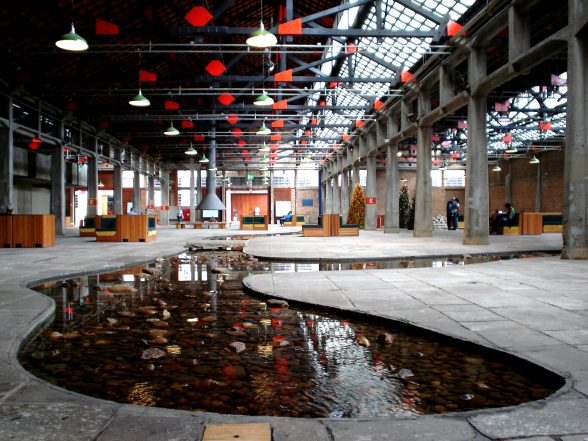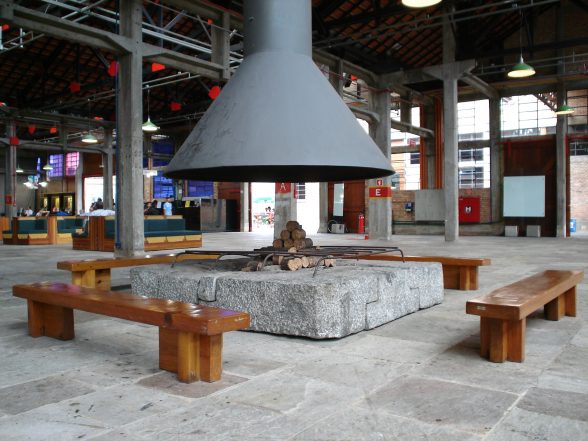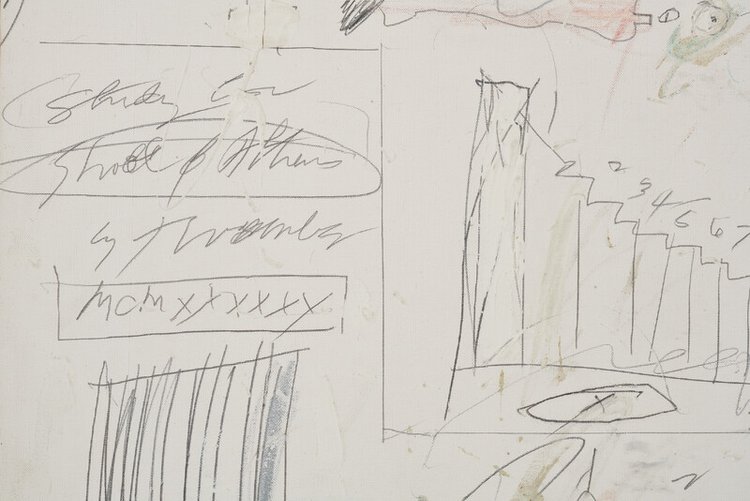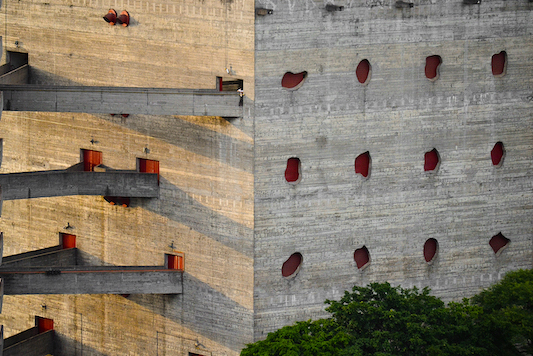|
|
Begin forwarded message:From: Maël Montévil (via phibiotheo Mailing List) <phibiotheo@services.cnrs.fr>Bonjour à toutes et tous,
ci dessous l'annonce du colloque annoncé lors de l'inauguration.
Bien à vous,
Marie Chollat-Namy, Maël Montévil, Anton Rober
OPEN HISTORICITY OF LIFE: THEORY, EPISTEMOLOGY, PRACTICE
9 - 10 November 2023, 9h30
Salle Dussane, École Normale Supérieure, 45 rue d'Ulm, Paris
ORGANIZATION: Marie Chollat-Namy, Maël Montévil, Anton Robert
Participants :
Stuart Kauffman, Giuseppe Longo, Armand Hatchuel, Pascal Le Masson, Maël Montévil, Andrea Loettgers, Tarja Knuuttila, Marina Cortes, Alessandro Sarti, Paul Antoine Miquel, Andrea Roli, Sélène Domino, Johanes Jäger, Marie Chollat-Namy, Anton Robert, Mathilde TaharProgramme
https://republique-des-savoirs.fr/wp-content/uploads/2023/10/2023-11-910-col-mm-program-v3.pdfDownloadable papers by the speakers:
https://mycore.core-cloud.net/index.php/s/zC9NL2KYZettzVoZoom Link:
https://cnrs.zoom.us/j/98339431287?pwd=VWJXK2c0NjRqSzBVVVFTc1VCN2xhZz09In the theory of evolution, the forms of life change, and these changes are critical for the understanding of living beings. However, the nature of these changes, and the way to understand them, remains a matter of open discussion. In the XIXth century, physics, especially classical mechanics, was the paradigm of science, and physics understands change as a displacement in an abstract mathematical space. This method has been imported into biology, for example, in population genetics; however, philosophers, notably Bergson, called into question the notion that things (always) exist as a possibility before they become actual. Bergson concludes that there are limits to our ability to understand living being that is intrinsic to mathematics and come from the creativity of evolution. To our knowledge, the only field of biology that built explicitly on this notion is phylogenetic systematics --- however this field also has very specific purposes.
In the last decade, the notion that new possibilities appear over time in biological phenomena has received renewed and growing attention. Kauffman approaches it as the adjacent possible, Sarti and Citti as heterogenesis, and Longo and Montévil as symmetry change and specific objects. Accordingly, there is a growing understanding that this notion is a significant shift and challenge in the way to do science.
However, there has yet to be a systematic effort to bring together the different perspectives on this question in biology and in other fields confronted with it. In this conference, we intend to create bridges between the different perspectives that have been developed, mostly independently, on the question of changing possibility spaces in biology. We aim to discuss the status of this notion: Do new possibilities appear by principle, or can their existence be proven? The second major topic of discussion will be the scientific possibilities and limits that this notion leads to. In particular, can it be captured by existing mathematics, new mathematics, something somewhat different, or no theoretical construct at all? In general, what kind of scientific practice does this question open?
From: Jonathan Simon <jonathan.simon@umontreal.ca>Subject: Fw: Giuseppe Longo, Conférence spéciale, 25 septembre, 10h-12h, Locale 422, 2910 Éd. Mont., « Espaces d'imagination dans la relation triangulaire : machine/homme/écosystème"
Date: September 18, 2023 at 4:37:51 PM EDT
Chers collègues,J'ai le plaisir de vous annoncer une conférence spéciale qui sera donnée lundi prochain, 25 septembre, de 10 h à 12 h, par Giuseppe Longo, en visite à Montréal du Centre Cavaillès, CNRS - ENS, Paris.
Veuillez transmettre cette invitation à vos collègues ou étudiants susceptibles d'être intéressés.
Où:
2910 boul. Édouard Montpetit,
locale 422
Quand:
10h - 12h, 25 septembre
Qui:
Giuseppe Longo
Centre Cavaillès, CNRS - ENS, Paris ww.di.ens.fr/users/longo
Quoi:
Espaces d'imagination dans la relation triangulaire : machine/homme/écosystème.Abstrait:
En 1936, Alan Turing imaginait un «calculateur humain... agissant sur un cahier d'enfant», saLogical Computing Machine : lire/écrire 0/1, se déplacer à gauche/à droite. Conjointement au Lambda-calcul de Church (1932), ces «systèmes de réécriture de termes» constituent encore aujourd'hui le fondement logique de l'informatique et, depuis trop longtemps, un paradigme pour la cognition humaine et l'IA. Turing les présentait comme une «imitation» possible d'un cerveau humain. Le «tournant connexionniste» s'appuie au contraire sur un «modèle» du cerveau, depuis Hebb et Rosenblatt (dans les années 1950) et a ouvert la voie au Deep Learning contemporain. Dans les deux cas, une machine à entrées-sorties est censée simuler un cerveau animal, sans espace tridimensionnel (ou avec juste une imitation de celui-ci par une cascade de couches bidimensionnelles), ni la matérialité biologique du cerveau dans son contexte (un crâne animal, dans un corps, dans un écosystème). Certains résultats limitatifs (mathématiques) du Deep Learning seront évoqués ainsi que les différences entre imprévisibilité, dynamique et créativité, comme instance de «production d'anti-entropie», notion proposée en 2009. Dans les processus mentaux, la production d'anti-entropie peut être comprise comme «l'invention de configurations de sens».
References :
G. Longo, Le cauchemar de Prométhée. Les sciences et leurs limites. Préface de Jean Lassègue, postface d’Alain Supiot. PUF, Paris, 2023. - Couverture-Table-introLeCauchemarPromethee.pdf - E. Klein : Présentation sur France Culture - 4 minutes
G. Longo, Information at the Threshold of Interpretation, Science as Human Construction of Sense. In Bertolaso, M., Sterpetti, F. (Eds.) A Critical Reflection on Automated Science – Will Science Remain Human? pp. 67-100, Springer, Dordrecht, 2019.
C. Calude, G. Longo. The Deluge of Spurious Correlations in Big Data, in Foundations of Science, 1-18, March, 2016.
(téléchargeable à l'adresse suivante: https://www.di.ens.fr/users/longo/download.html )
Giuseppe Longo is DRE CNRS, at the Cavaillès, République des Savoirs, interdisciplinary center of Ecole Normale Supérieure, Paris and a former Professor of Mathematical Logic and of Computer Science, University of Pisa. He spent three years in the USA (Berkeley, MIT, Carnegie Mellon) as researcher and Visiting Professor. GL is co-author of about 140 papers. Founder and director (1990-2015) of Mathematical Structures in Computer Science, a Cambridge U.P. journal, he co-authored the book with A. Asperti, on Categories, Types and Structures (M.I.T. Press, 1991). He then extended his research interests to Theoretical Biology and Epistemology, see the books with F. Bailly, Mathematics and the natural sciences: The Physical Singularity of Life (Hermann, Paris, 2006; Imperial College Press, London, 2011) and with M. Montévil, Perspectives on Organisms: Biological Time, Symmetries and Singularities (Springer, Berlin, 2014). GL edited with A. Soto and D. Noble (and co-authored six papers of) From the century of the genome to the century of the organism: new theoretical approaches, a special issue of Prog Biophys Mol Biol, 122, 1, 2016. GL is currently focusing on historical correlations and on alternatives to the new alliance between computational formalisms and the governance of man and nature by algorithms and by supposedly objective "optimality" methods. He recently published ‘‘Matematica e senso. Per non divenir macchine’’ (Mimesis, 2021); a largely revised and extended version in French of this book is ‘‘Le cauchemar de Prométhée’’ (PUF, April 2023).
Web page: http://www.di.ens.fr/users/longo/

SESC (Serviço Social do Comércio ) - Social Service of Commerce is a private organization supported by entrepreneurs in businesses, tourism and services. Inspired by concepts from the Cartar da Paz Social (Letter for Social Peace), it aims to provide well-being and quality of life to professionals working in these industries and their family members. SESC’s initiatives stem from a solid cultural and educational project that has borne the mark of innovation and social transformation since it was established by the business and services community in 1946.Throughout its more than 70 years, SESC has been innovating by introducing new models of cultural action and, in the ‘80s, underscored education as a basic tenet for social transformation. It has been fulfilling its purpose through concentrated efforts in the field of culture and its many forms of expression, reaching audiences that span all age groups and social strata. That means not only offering a wide variety of activities, but also making an effective contribution to more long-lasting and meaningful experiences.SESC’s network in the state of São Paulo includes 43 locations dedicated to culture, sports, health and food, children and youth development, senior citizens and social tourism, among others. The venues feature different architectural styles and influences and were conceived in collaboration with renowned architects, such as Lina Bo Bardi and Paulo Mendes da Rocha, who designed SESC Pompeia and SESC 24 de Maio, respectively.The organization’s reach in the state of São Paulo extends well beyond city facilities dedicated to social and cultural activities. Cultural and sports initiatives occupy streets, squares, parks and other spaces, and tons of food, provided by donor businesses, are handed out to social organizations through projects such as the Circuito SESC de Artes (SESC Art Circuit), Dia do Desafio (Challenge Day) and Mesa Brasil (Brazil Table), held in partnership with city halls and local trade unions.Other channels that help to increase access to SESC’s programs and cultural assets are its web Portal, SESC SP, SESC TV, a publishing house - Edições SescSP, a record label - Selo Sesc, and magazines Em Cartaz (What’s On), Mais 60 (60 More) and Revista E (Magazine E).Sesc São Paulo’s technical team currently comprises more than 7.000 employees and, therefore, people management involves many actors, activities and processes at all levels of the organization. The diversity of Sesc’s staff paves the way towards providing better quality services and fulfilling its mission to the best of its abilities.The considerable knowledge acquired by Sesc throughout its long journey following these tenets has led it to become a policy-making reference in its many fields of operation. In recent years, the institution has been invited to join boards, committees, associations, collegiate bodies, forums and various working groups. Today, Sesc São Paulo representatives sit in the advisory and executive bodies of 50 national and international art, sports, culture, health, environment, tourism, social services and human rights organizations.
Sesc’s ongoing and non-formal education initiatives aim to foster the development of its many different audiences by encouraging their autonomy, and contact and interaction with different forms of expressions, ways of thinking, acting and feeling.

http://tinyurl.com/cjaugjx
http://iforam.org/media
http://iforam.org/media/publications
http://tinyurl.com/7ccj9rk







